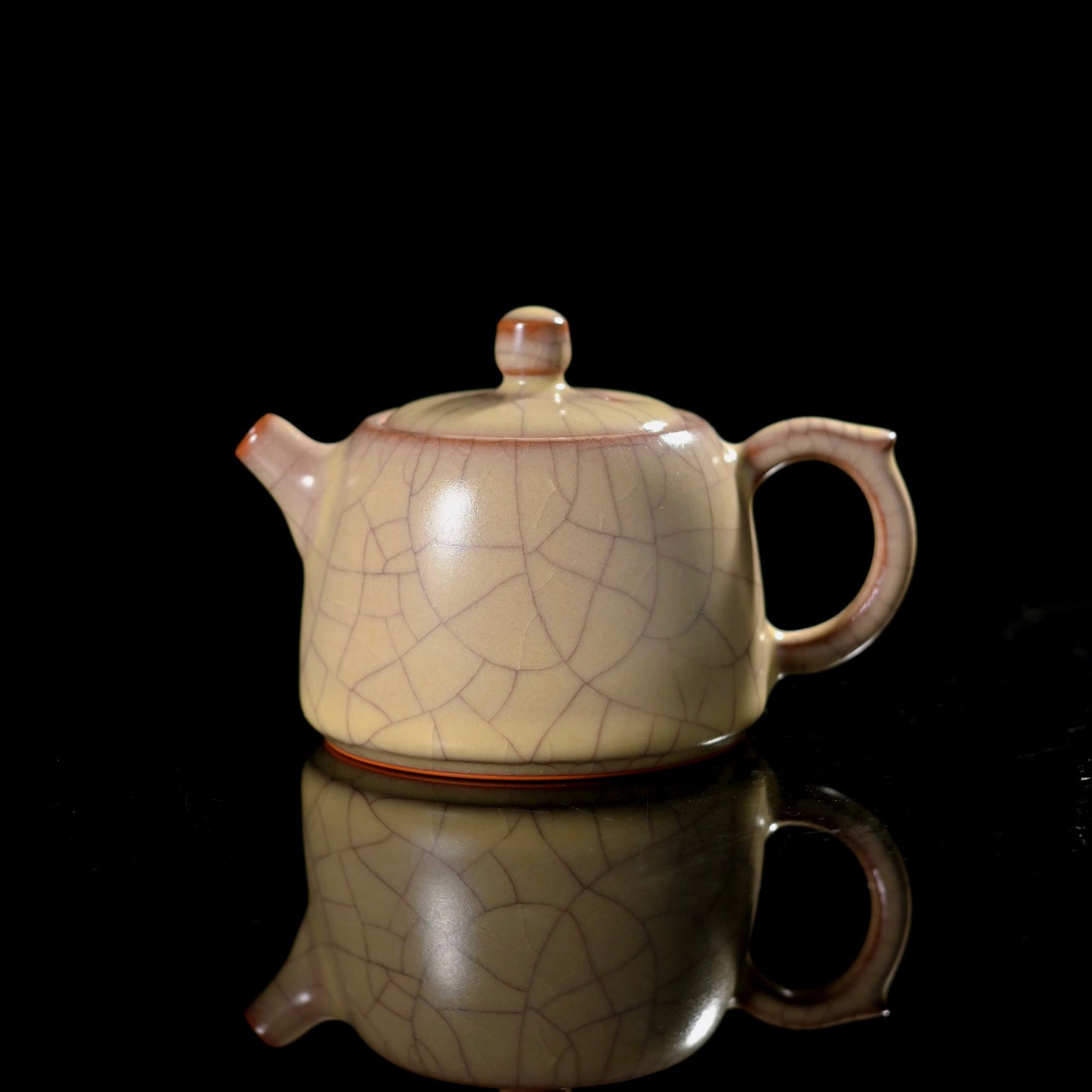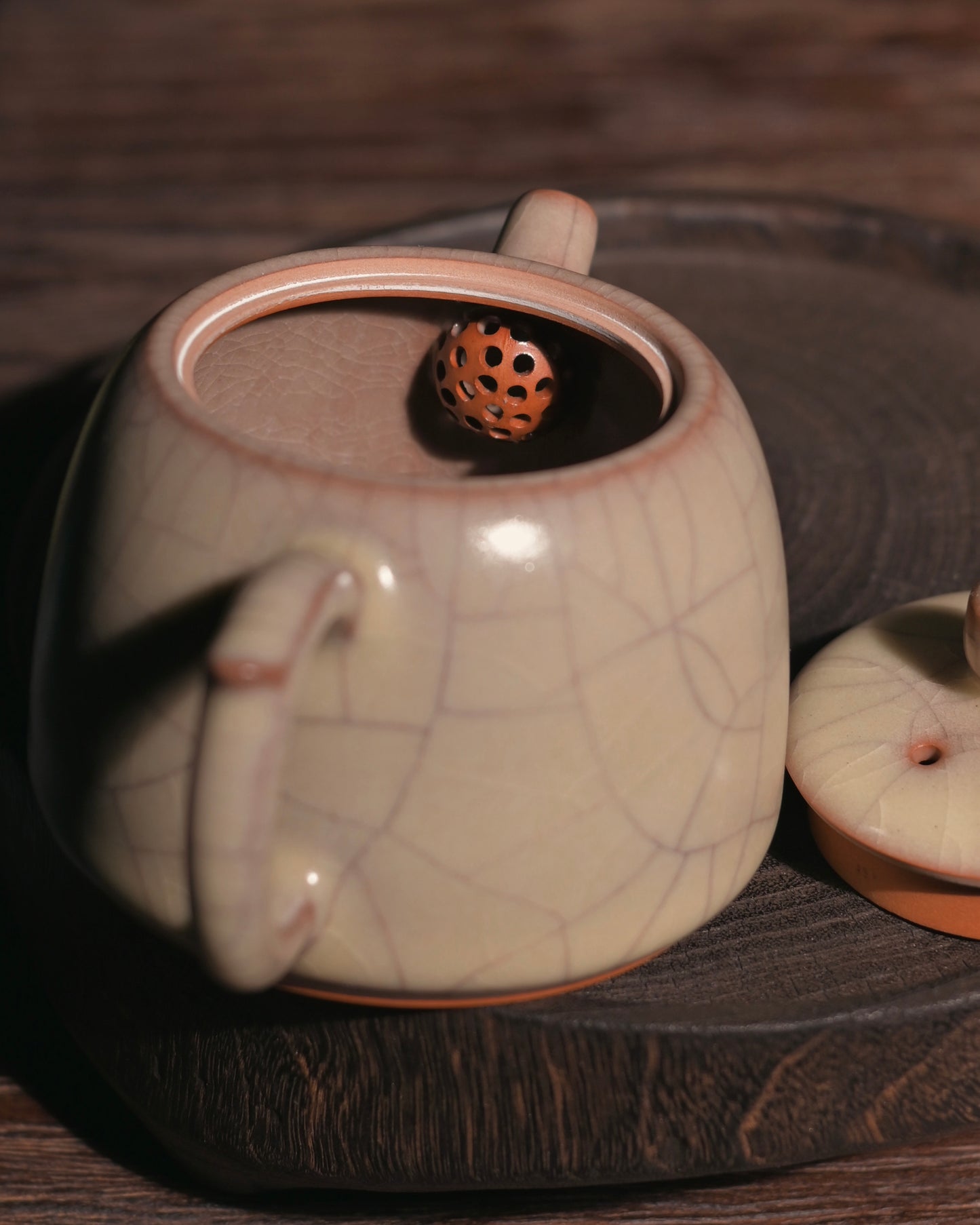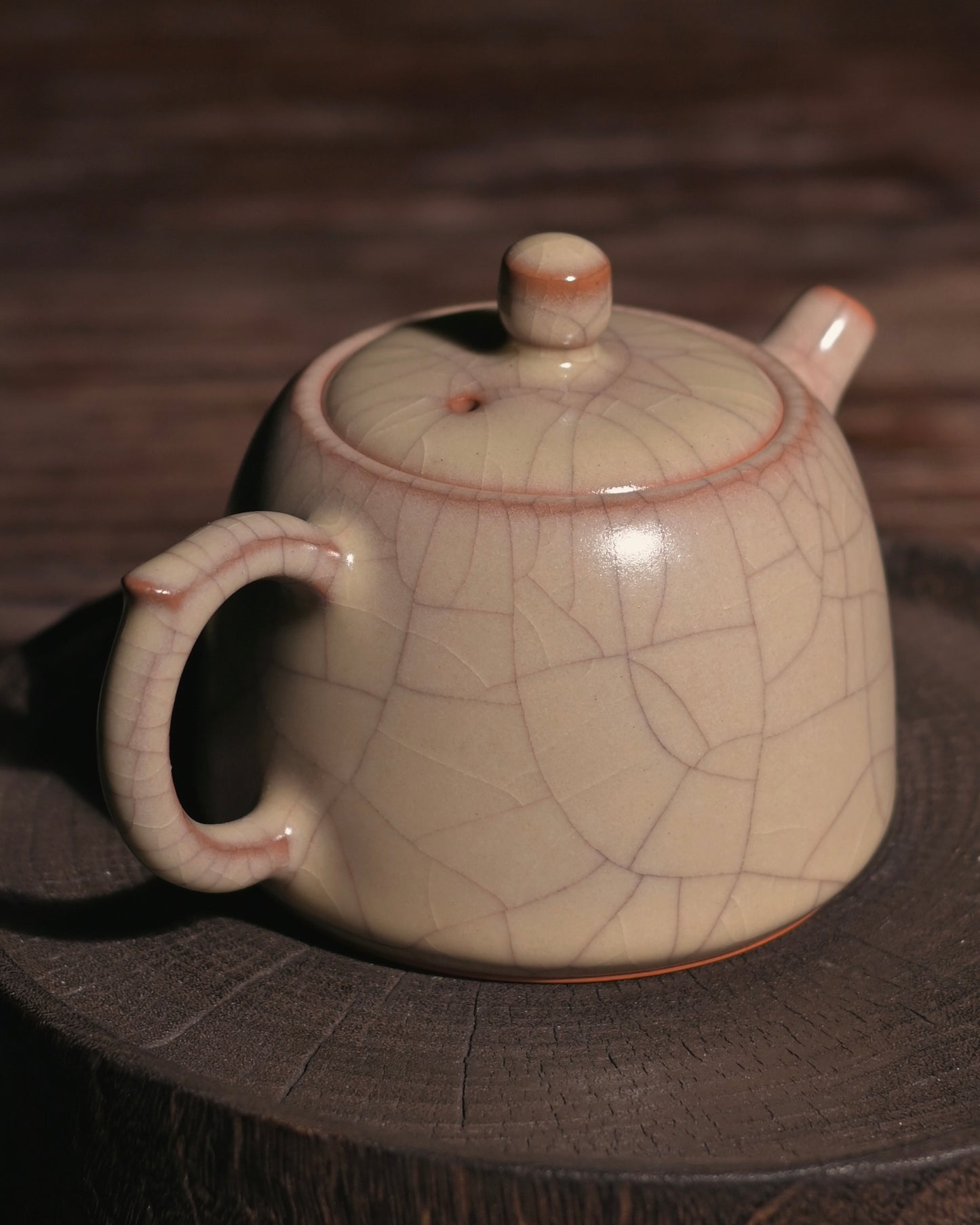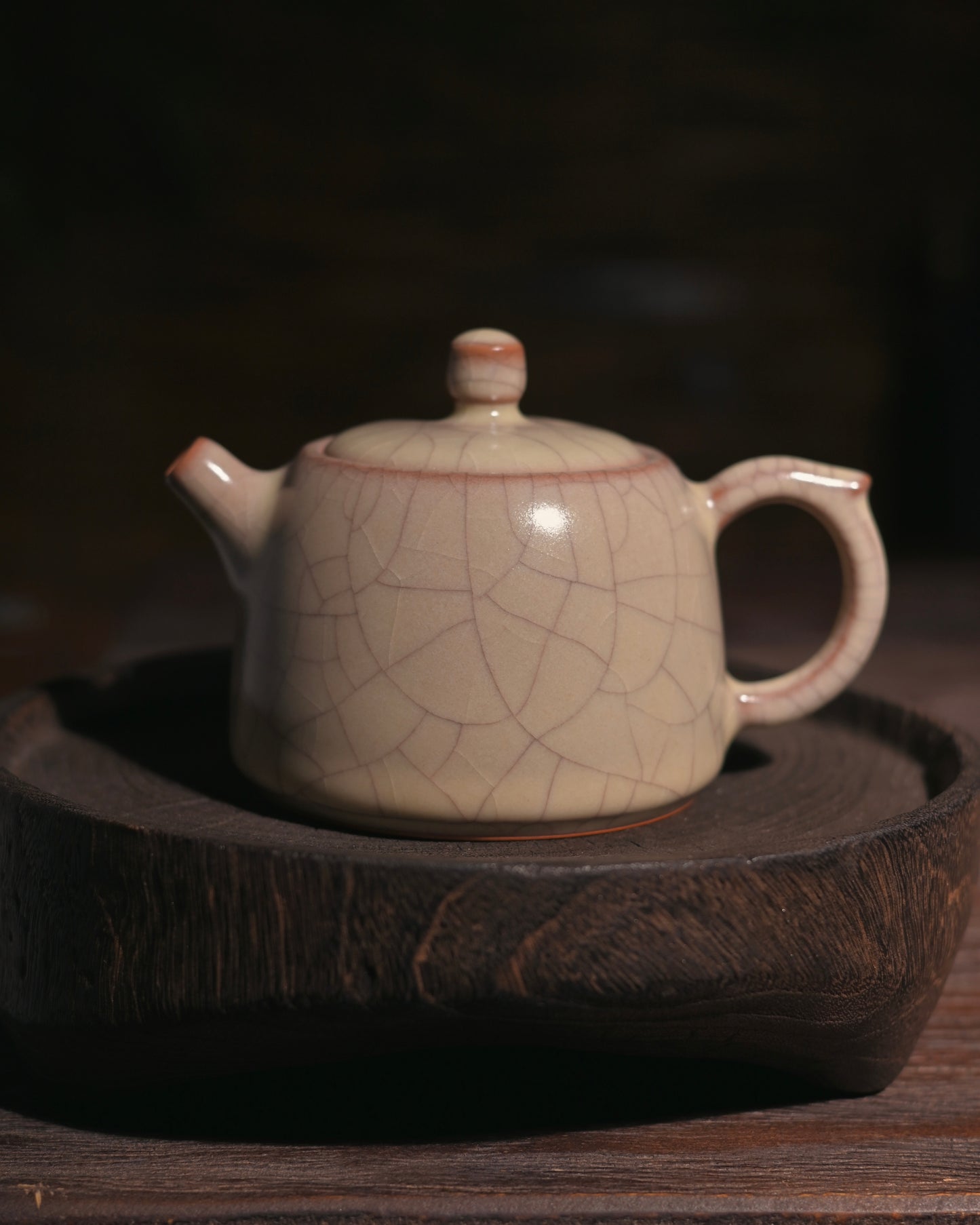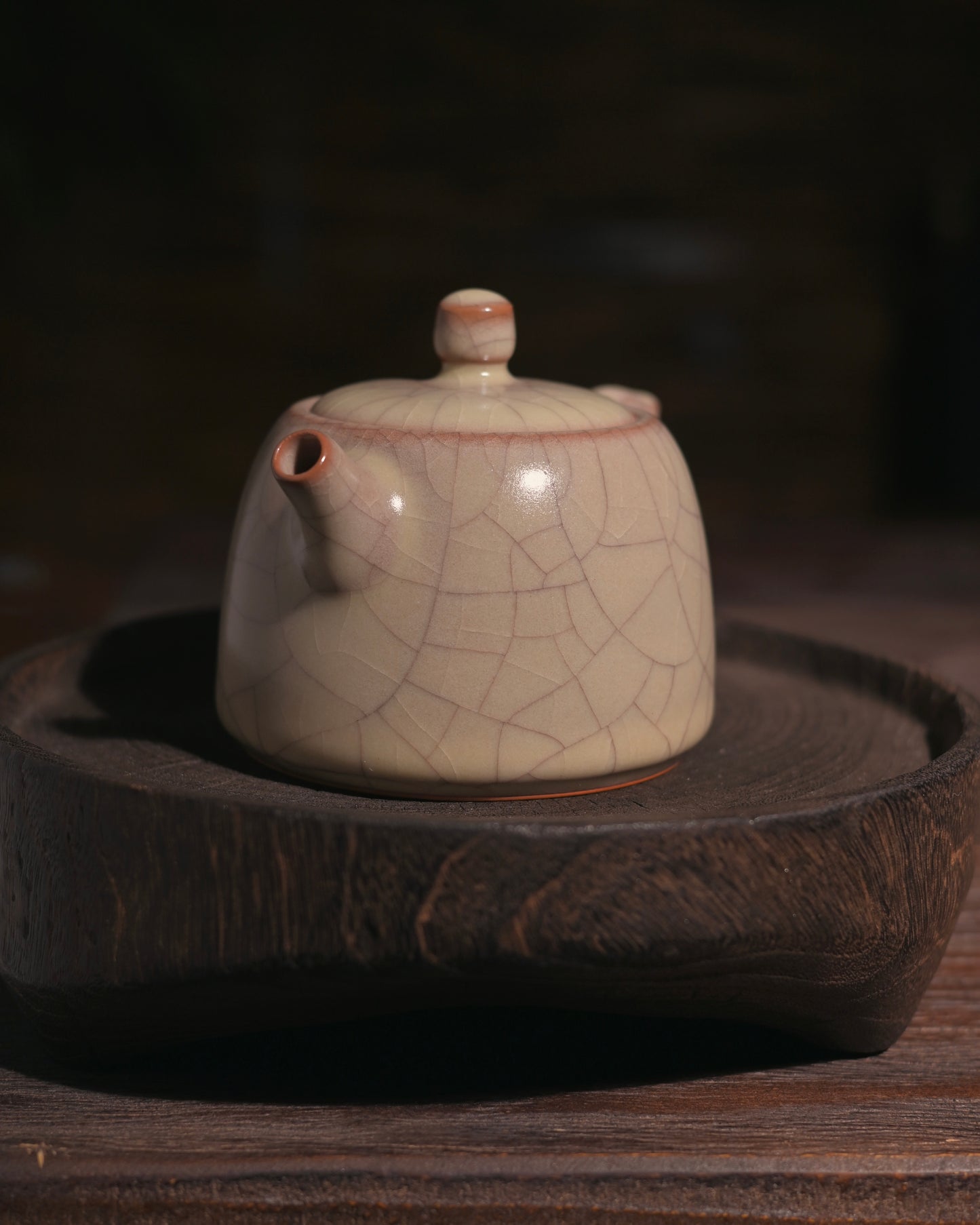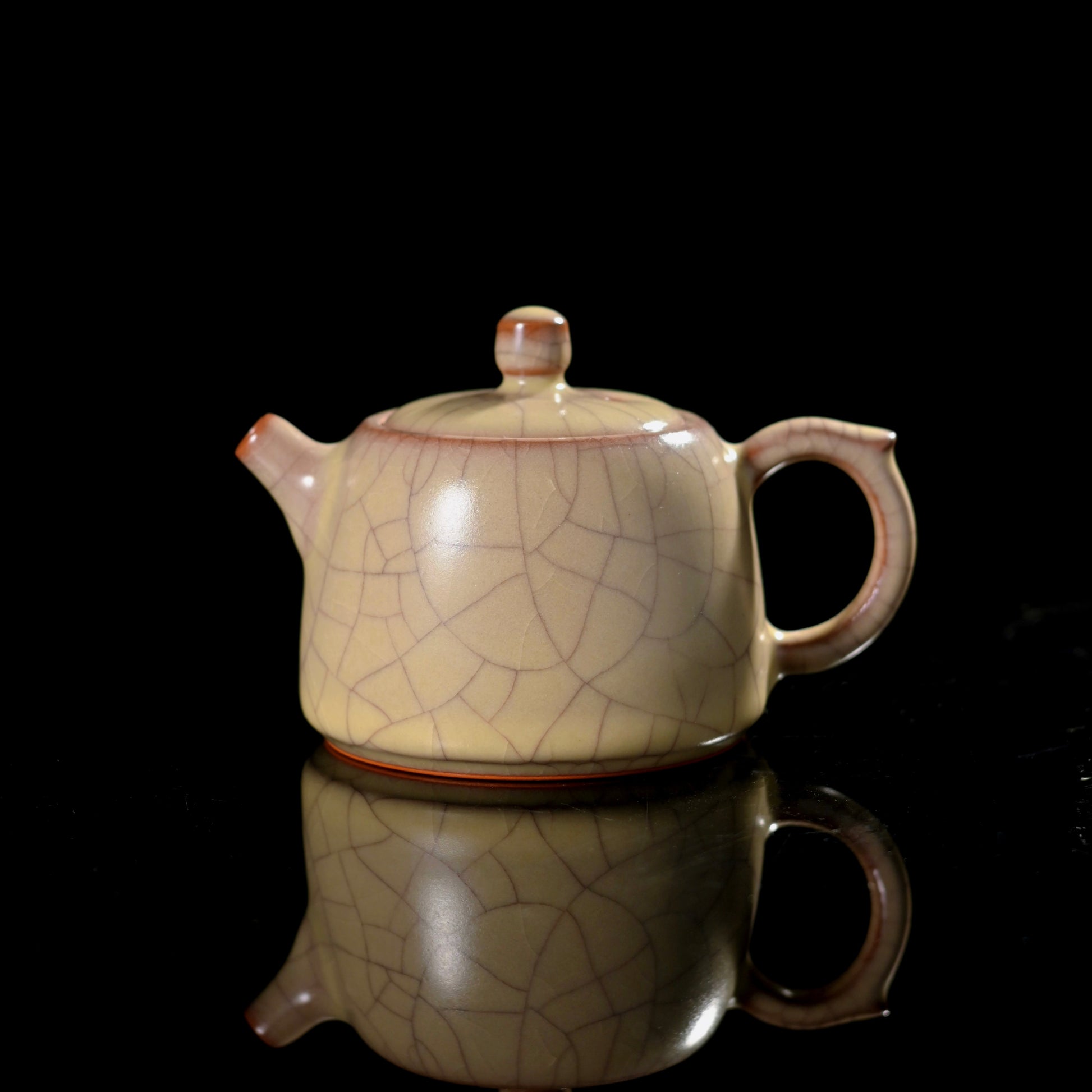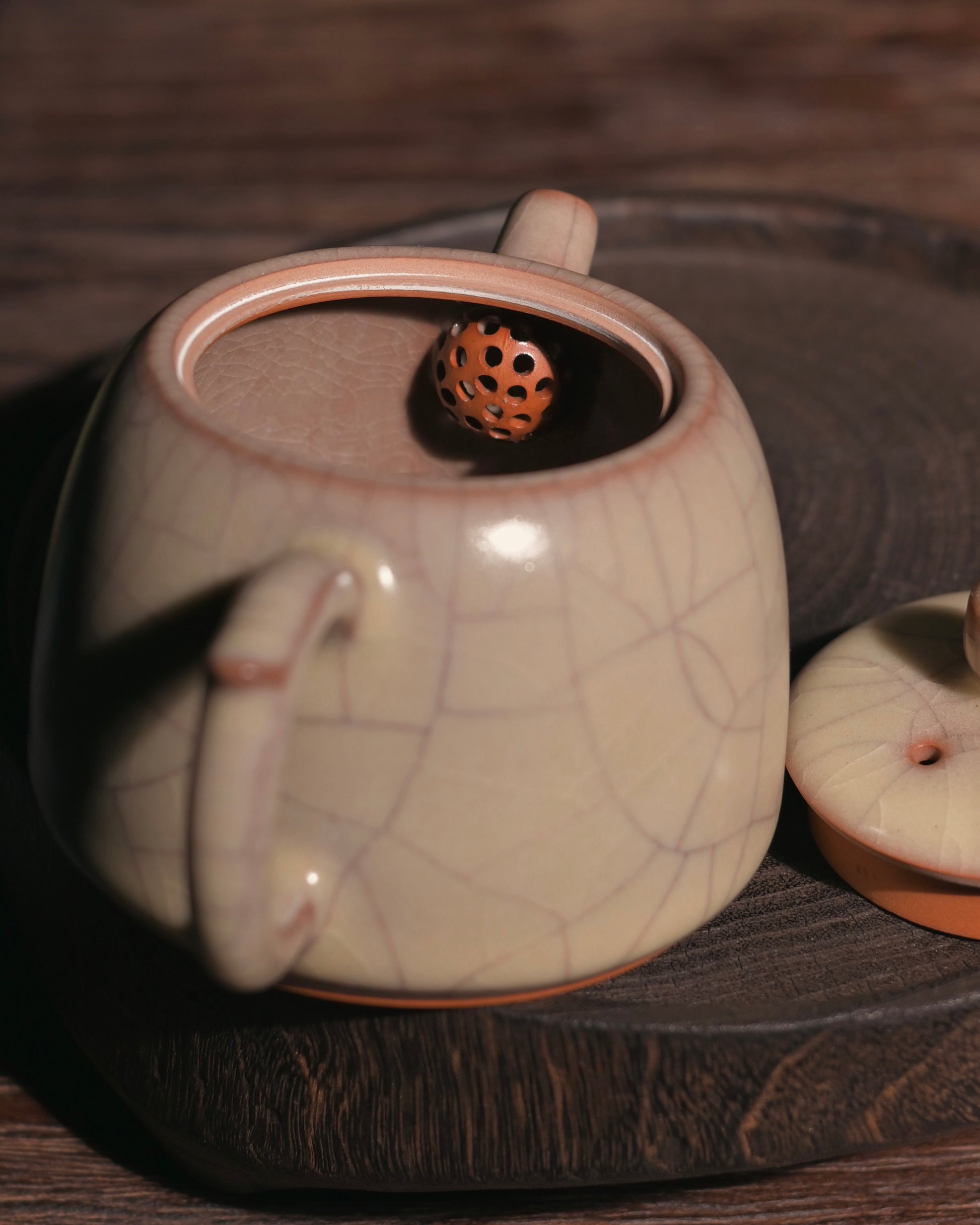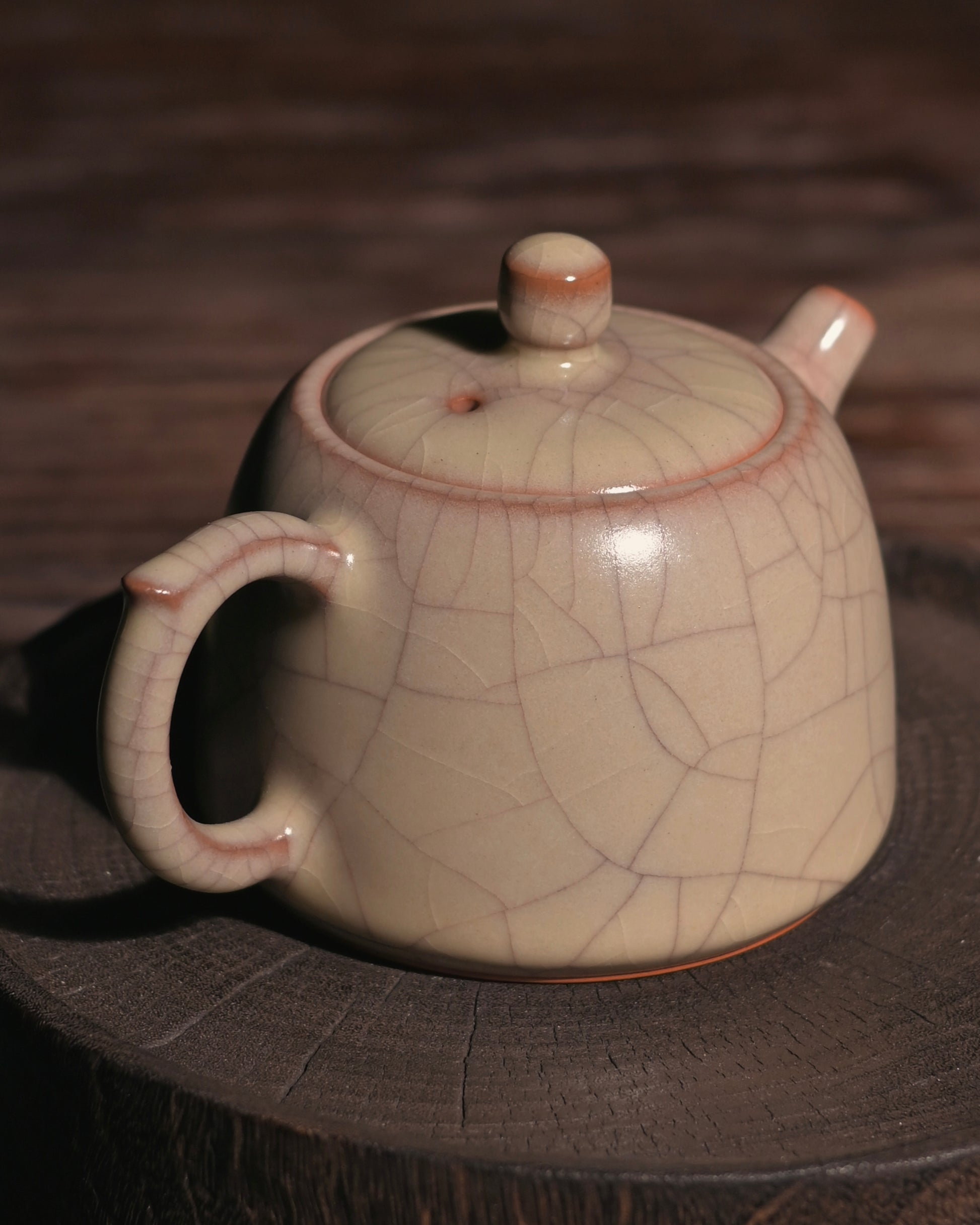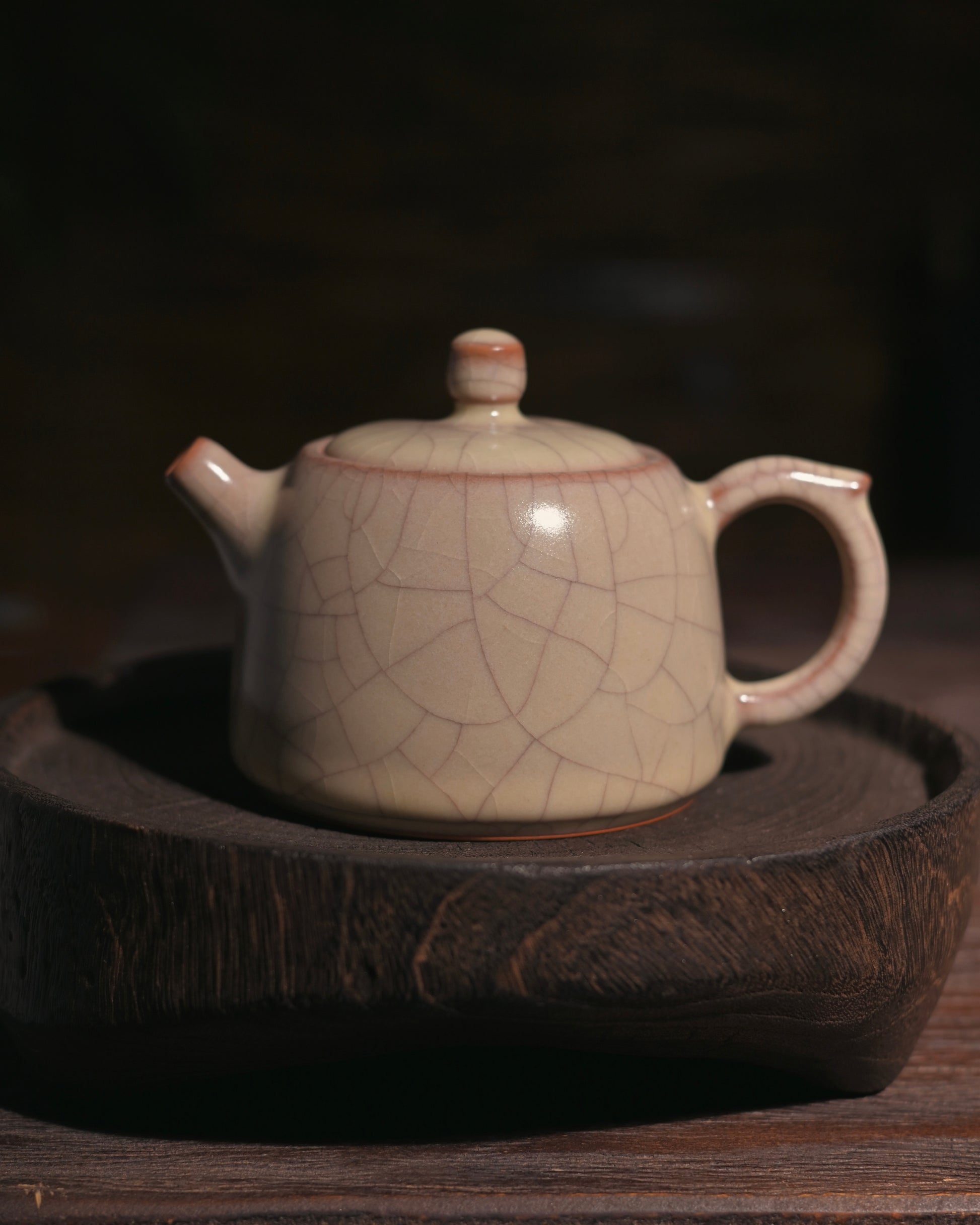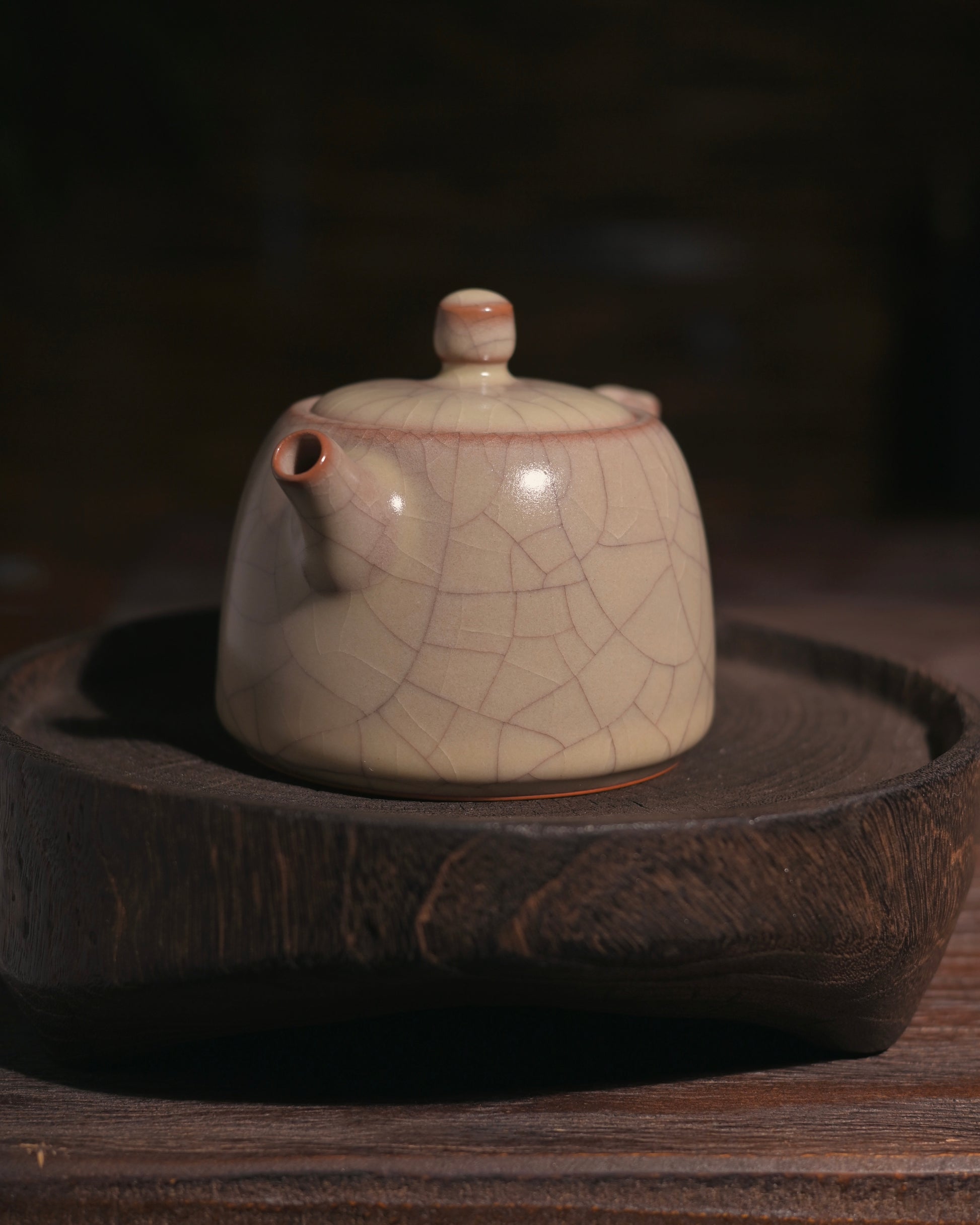Longquan Celadon Ge Kiln "Golden Threads and Iron Lines" Teapot
Longquan Celadon Ge Kiln "Golden Threads and Iron Lines" Teapot

Couldn't load pickup availability
Product Specifications
Capacity: 130ml
Diameter:12.0cm
Height: 8.0cm
Material: Longquan Iron Clay
Food Safe: Yes
Packaging: Premium gift box

Longquan Kiln products are known for their classic simplicity and dignified forms, adorned with an elegant glaze. Ge Kiln ware, in particular, features a thin yet durable body and a richly layered glaze that displays an intricate, ever-varying network of crackle patterns.
The clay composition used in Longquan celadon is especially critical, containing a high proportion of quartz along with minerals such as kaolinite and mica.
With origins dating back 1,700 years, Longquan Celadon flourished during the Northern Song Dynasty and peaked in the Southern Song. It is recognized as one of China's "Five Great Kilns" of classical ceramics.

How are the "Golden Threads and Iron Lines" of Ge Kiln formed?
The differing thermal expansion coefficients of the ceramic body and the glaze layer cause the glaze to crack during the cooling phase after firing, resulting in an intricate network of cracks of varying sizes. Initially, these cracks are colorless. However, Ge Kiln ware typically undergoes a specialized process where, in the later stages of firing, the pieces are immersed in an iron-rich solution or cooled in an iron-ion-enriched environment. The iron ions penetrate the cracks, oxidize upon exposure to air, and form iron oxides, creating the dark brown or black patterns known as "Iron Lines."
The "Golden Threads" develop later. After the ware is removed from the kiln, over years or even decades of use and storage, fine cracks gradually accumulate dust, moisture, and other impurities from the air. These substances slowly oxidize and age, eventually forming the golden-brown patterns known as "Golden Threads."
SGS Certification & Quality Assurance
SGS Certification & Quality Assurance
Our products has been tested by SGS, an internationally recognized third-party inspection and certification organization.
The testing confirms that the materials used meet applicable safety and quality standards for daily use, ensuring the product is suitable for contact with hot beverages.
For more details about our testing standards and certification process, please read our full article here:
👉 Learn more about our SGS certification
Shipping & Returns
Shipping & Returns
We want you to be completely satisfied with your Saanwu purchase. If for any reason you are not happy with your order, you may request a return or exchange within 14 days of delivery. If you have any questions, our customer service team is always happy to assist you. You can reach us via online chat or email.
Handling Time
In general case, please allow us to take up to 5 business days to prepare the package.
Shipping Methods
| Countries | Delivery Time (Business Days) | Orders Over 70 (USD) | Orders less than $70 (USD) |
| United States | 5-10 Days | Free | 9.99 USD |
| Japan | 3-5 Days | Free | 1,556 JPY |
| Canada | 5-9 Days | Free | 13.80 CAD |
| United Kingdom | 5-8 Days | Free | 7.50 GBP |
| Switzerland | 6-12 Days | Free | 7.99 CHF |
| Netherlands | 6-12 Days | Free | 8.50 EUR |
| Germany, Spain, France, Italy | 6-12 Days | Free | 8.50 EUR |
| Australia | 10-15 Days | Free | 15.15 AUD |
| Saudi Arabia | 8-12 Days | Free | SAR 37.50 |
Contact Us
Contact Us
🫖 Trade name: Saanwu
📞 Phone number: +86 13422886605
💬 WhatsApp: https://wa.me/saanwustudio
✉️ Email: service@saanwustudio.com
⏰ Business Hours: 8:00 AM – 12:00 AM
📍 Physical address: 1942 Broadway St STE 314C, Boulder, Colorado 80302, United States
